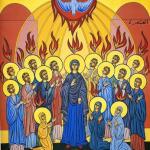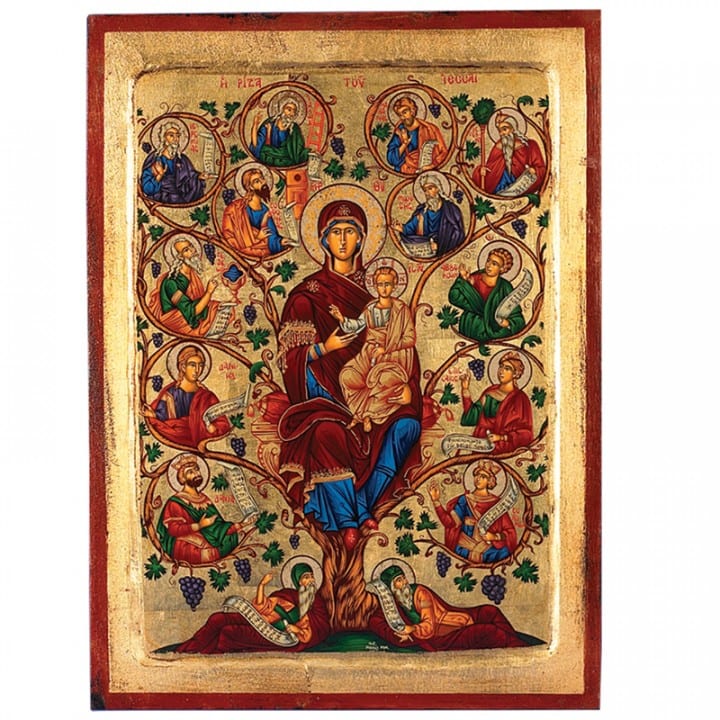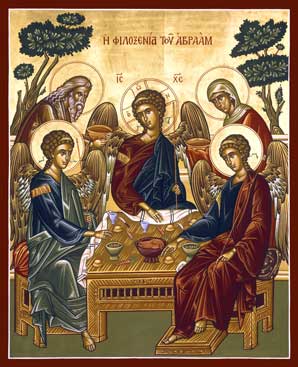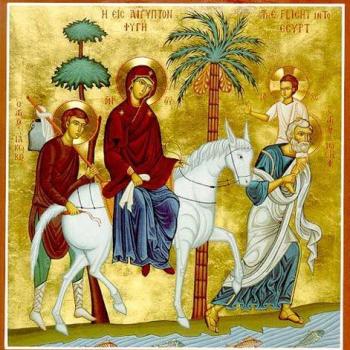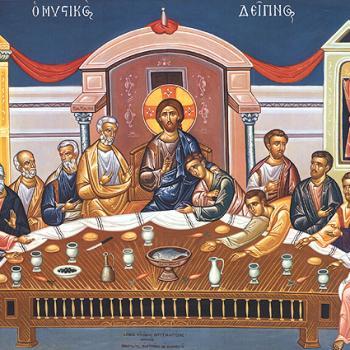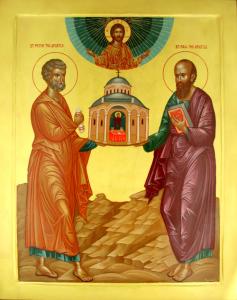 “Pope Francis the First, a Jesuit with a Franciscan’s humility” is among the best descriptions of the Holy Father that I have come across during his papacy. It is the title of Abbott Tryphon’s beautiful tribute on Ancient Faith Radio’s Morning Offering.
“Pope Francis the First, a Jesuit with a Franciscan’s humility” is among the best descriptions of the Holy Father that I have come across during his papacy. It is the title of Abbott Tryphon’s beautiful tribute on Ancient Faith Radio’s Morning Offering.
Broadcast shortly after Francis’ election to the papal office, Father Tryphon’s opening paragraph has since proven prophetic:
In Catholic Tradition, Francis of Assisi had a mystical vision in which Christ told him to rebuild His Church. In taking the name Francis, this pope seems to be pledging himself to rebuild the image and integrity of a Church that has suffered from widespread allegations of corruption, and the coverup of the child sex abuse by the innumerable members of her clergy.
Indeed, much of Pope Francis’s pontificate has been restoring the Church’s voice within society’s broader discussion. Pope Francis is credible among many who ordinarily are unreceptive to hearing the Church speak. Even the Church’s critics are willing to give Pope Francis–and by extension Catholicism–a fair hearing.
Consider the source of the above-mentioned tribute. Father Tryphon is abbott of All-Merciful Saviour Monastery–a Russian Orthodox Church Outside of Russia (ROCOR) community near Seattle, Washington. He is not the only popular ROCOR monastic to show Pope Francis respect. Last month, I reported Sister Vassa‘s defence of Pope Francis’s orthodoxy on the topic of hell. Sister Vassa explained the context of Scalfari’s highly-interpretive report with much more clarity than the many Catholic celebrities accusing the Holy Father of secretly supporting heresy.
This is a positive fruit of Francis’s papacy.
Twenty years ago, freshly departed from the Society of St Pius X (SSPX) and reconciled with the Church, I became as a canon law student at Saint Paul University. There I often found myself socializing and attending liturgy next door at the Metropolitan Andrey Sheptytsky Institute for Eatern Christian Studies (MASI). Eventually I enrolled in courses and earned an undergraduate certificate in Eastern Christian studies.
This experience forced me as a Latin traditionalist only recently departed from the SSPX to adopt a more ecumenical mindset. The bulk of MASI’s students were drawn from Eastern Catholic and Eastern Orthodox Churches, with a handful of Oriental Orthodox, Latin Catholics, and the occasional Evangelical. Yet the one jurisdiction not represented among the Orthodox was ROCOR.
I quickly discovered that ROCOR was Eastern Orthodoxy’s closest equivalent to the SSPX. ROCOR adherents were theologically conservative, liturgically traditionalist, and often prone to conspiracy thinking. A big question mark hung over ROCOR’s canonical status within Eastern Orthodoxy, as well as its communion with other Orthodox Churches. ROCOR viewed other Orthodox Churches suspiciously as too influenced by liberalism and modern thinking.
No ROCOR adherent dared darken the door of MASI given ROCOR’s steadfast opposition to ecumenism. This was in addition to ROCOR’s disdain of “uniates”–a derogatory term for Byzantine Catholics that many hardline Orthodox insisted upon using in public discussion. This is not unlike how many Latin traditionalists today insist upon always referring to Protestant brothers and sisters polemically as “heretics,” or to the Eastern Orthodox with whom we share a common sacramental Tradition as “schismatics”. This, despite the Catholic Church’s call post-Vatican II to demonstrate charity in our dialogue with non-Catholics.
Twenty years later, the respect Pope Francis has garnered for Catholicism touches even Orthodox traditionalists, monastics, and ROCOR adherents like Father Tryphon and Sister Vassa. (Though in the interest of historical accuracy, ROCOR has in intervening years reconciled with the rest of the Orthodox Church, much like the SSPX today is reconciling with the Catholic Church under Pope Francis.)
Not only is Pope Francis praised for his actions, but also for his theological orthodoxy. “As Jesuit provincial, he put an end to the liberation theology being taught to the Jesuits under him, demanding they stop their involvement in politics and place their energies in serving the spiritual needs of their people,” Father Tryphon states.
The Orthodox abbot then adds:
In taking the name of a saint known for humility and a simple lifestyle, Pope Francis promises to be the Christ-like image of leadership the Roman Catholic Church–and dare I say the whole world–needs. […] The Christ-like witness we see in this pope promises to be a level for the rebuilding of a Christianity that has been in decline.
Fr Tryphon concludes with highest compliment an Eastern Orthodox traditionalist and monastic can pay a Latin pope: “This to my mind is a pope that we Orthodox can work with and a man that we can love,” Fr Tryphon states.
Fr Tryphon understands Pope Francis better than many of the Holy Father’s ultra-conservative critics within Catholicism. This is only possible because Pope Francis, through his example of Christ-like leadership, has gained Catholicism an audience among the Church’s traditional critics.


